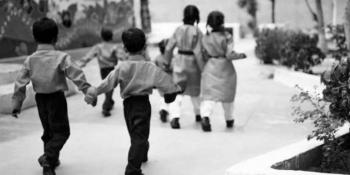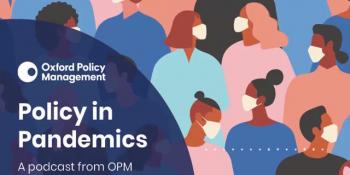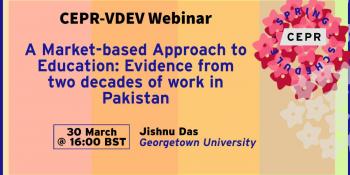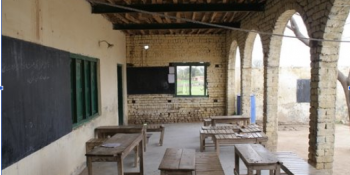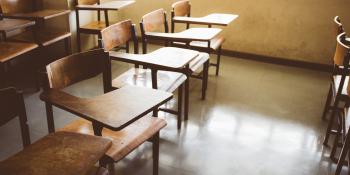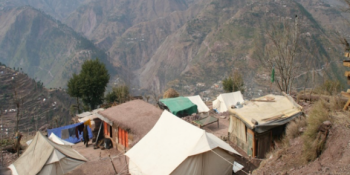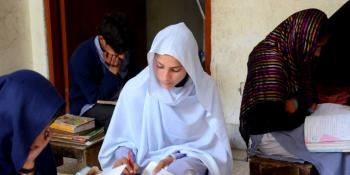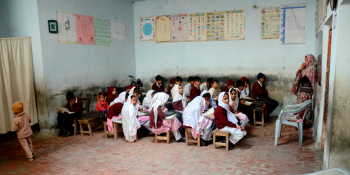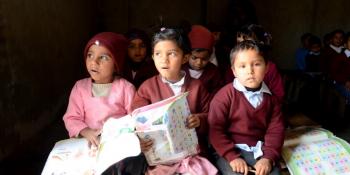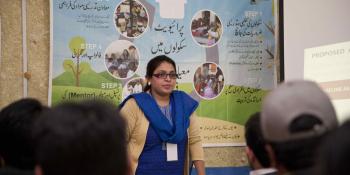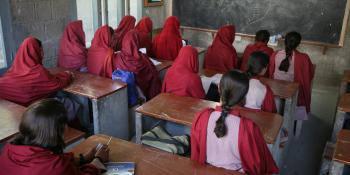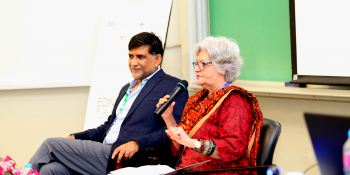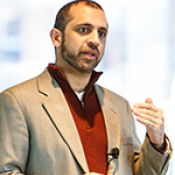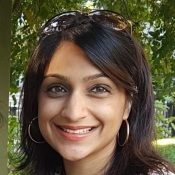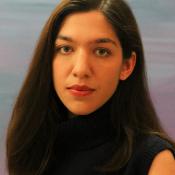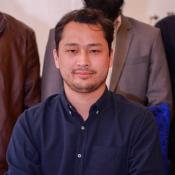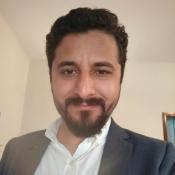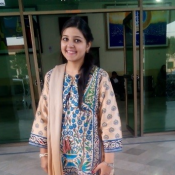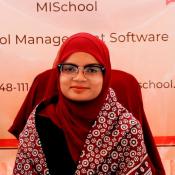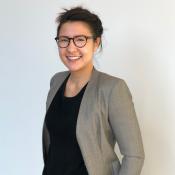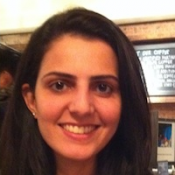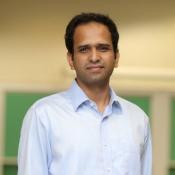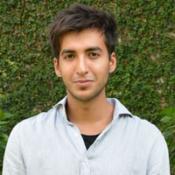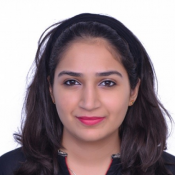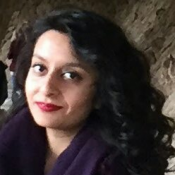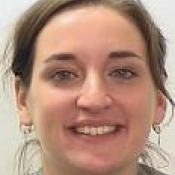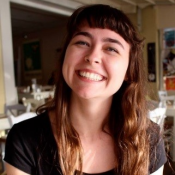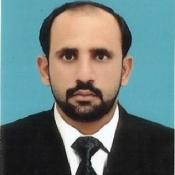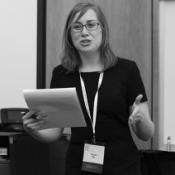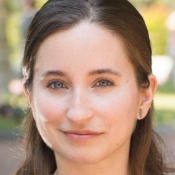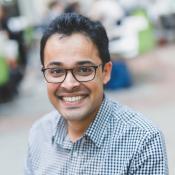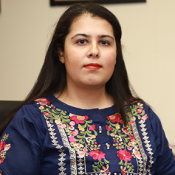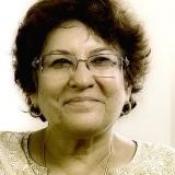Improving educational quality requires moving beyond a focus on specific input augmentation – such as textbooks or teacher training – in schools. Our research takes a comprehensive systems approach, in which we examine the full schooling environment – or the education ecosystem – and the constraints that prohibit students, parents, schools and other education actors from fulfilling their own objectives.
About LEAPS
LEAPS began in 2003 as a large-scale, independent survey and testing exercise to provide a framework for an evidence-based debate about education performance and policy in Pakistan.
A team of researchers led by Asim Ijaz Khwaja, EPoD co-director and CERP co-founder, Tahir Andrabi of Pomona College, and Jishnu Das of the World Bank, gathered information on every aspect of the educational marketplace in 112 villages across the Punjab province of Pakistan.
The LEAPS research agenda has since expanded into a long-term engagement and a series of experiments to examine how to catalyze innovation in education and improvements in learning outcomes with a range of actors and sectors across Pakistan. We are conducting a range of studies and experiments in Pakistan using this market-based approach to understand and help alleviate system-level frictions and catalyze improvements in learning outcomes.
The LEAPS team comprises of researchers at EPoD, CERP (the Center for Economic Research in Pakistan), the World Bank and Pomona College, with collaborating researchers from IDEAS and UC Berkeley.
Our Impact
Shifting the focus to the learning crisis
LEAPS was the first large-scale study to highlight the learning crisis in Pakistan with our landmark report in 2008. Through our research and engagement with government and private stakeholders, we have influenced the discourse, emphasizing education quality in Pakistan’s schools. Our work has helped place Pakistan on the map as an global leader in education reform.
Read more
LEARNING to Realize Education's Promise
Pakistan's Lessons in School Reform
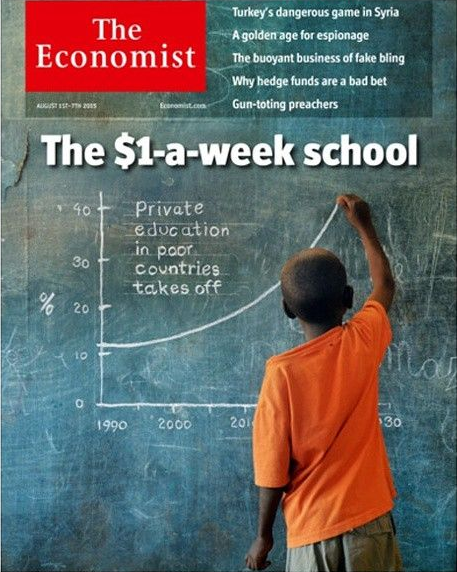 Highlighting the growth of low cost private schools
Highlighting the growth of low cost private schools
LEAPS was also one of the first to highlight the rise and rapid growth of low-cost private schools, a phenomenon that fundamentally alters the role of government, presenting challenges but also significant opportunities for improving education.
Read more
Low-Cost Private Schools: Learning Unleashed
A Dime a Day: The Possibilities and Limits of Private Schooling
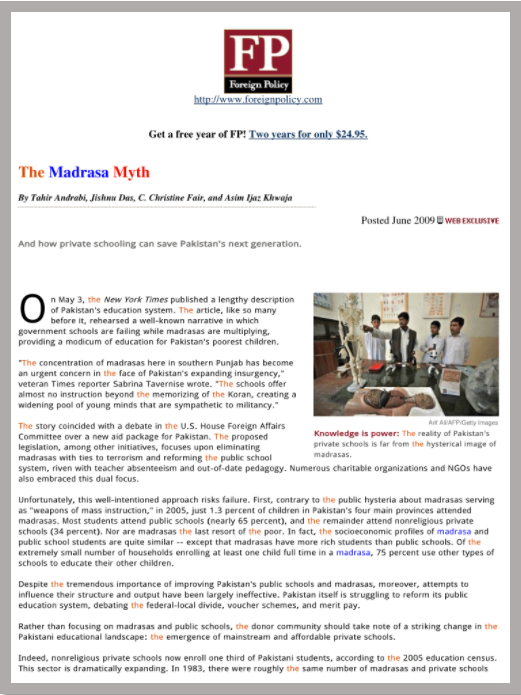 Refocusing the Education Debate
Refocusing the Education Debate
At a time when reports in the Western media attributed rising extremism in Pakistan to religious education, LEAPS debunked myths about the prominence of madrassas, showing that less than 1 percent of schoolchildren were enrolled in religious schools, and that there had been no increase in madrassa enrollment over time.
Read more
The Madrasa Myth
Madrassa Metrics: Rhetorics & Statistics of Religious Enrollment
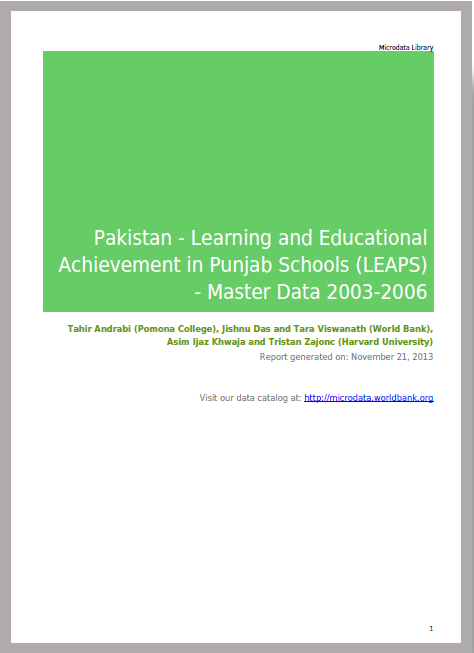 Providing a rich source of data for further research
Providing a rich source of data for further research
As a pioneer of work on educational markets in Pakistan, the LEAPS team has demonstrated a strong commitment to making our data public, paving the way for additional rigorous research education in Pakistan, and seeing our findings improve education across borders. We are proud to have shared LEAPS data over 400 times and the LEAPS report has been cited in at least 140 different publications.
Read more
Putting LEAPS Research to Work in India
Email us for the LEAPS public data set
LEAPS is currently supported by Research on Improving Systems of Education (RISE) and the UK Economic and Social Research Council (ESRC). LEAPS has also received support from the Private Enterprise Development in Low-Income Countries (PEDL), John Templeton Foundation, NSF, World Bank's Strategic Impact Evaluation Fund (SIEF), Aman Foundation, Exxon via the Women in Public Policy Program at Harvard. For more information, please contact Zainab Qureshi.
Evidence from LEAPS research shows private schools in Pakistan are accessible & provide high-quality learning.
LEAPS Director Zainab Qureshi discusses the consequences of COVID-19 on low-cost private schools in Pakistan.
Watch PI Jishnu Das present evidence from our two decades of work on education in Pakistan.
Using data collected by EPoD’s LEAPS team, the myth that private school goers must be ‘the elite’ is challenged.
Newly mandated national curriculum textbooks have upended private schooling in Pakistan, delaying the start of the school year.
Student learning levels have been set back by months due to the pandemic.
A seemingly full recovery for adults and infrastructure hid deep and lasting scars on children.
The kings and queens of the data modelling profession are now empirical economists.
Pagination
- 1
- of 2
- Next page
The bedrock of LEAPS research, this study follows students all the way into adulthood.
We connect low-cost schools to curriculum development, teacher training and technology.
A functioning teacher labor market can generate a virtuous cycle of education and learning.
We are helping to build a community of practice among stakeholders in the education ecosystem.
Principal Investigators
Director, Center for International Development
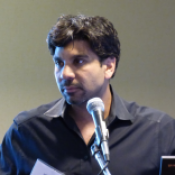
Walsh School of Foreign Service,
Georgetown University
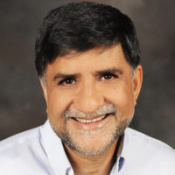
Pomona College
LEAPS Team
Alumni
Research outputs
Andrabi, Tahir, and Christina Brown. 2021. "Inducing Positive Sorting through Performance Pay: Experimental Evidence from Pakistani Schools." RISE Working Paper Series (forthcoming)
Andrabi, Tahir, and Christina Brown. 2021. "Subjective versus Objective Incentives and Teacher Productivity." RISE Working Paper Series (forthcoming)
Bau, Natalie, Jishnu Das, and Andres Yi Chang. 2021. "New Evidence on Learning Trajectories in a Low-Income Setting". International Journal of Education Development, 84 (102430)
Carneiro, Pedro M., Jishnu Das, and Hugo Reis. 2021. "The Value of Private Schools: Evidence from Pakistan." RISE Working Paper Series (forthcoming)
Andrabi, Tahir, Natalie Bau, Jishnu Das, and Asim I. Khwaja. 2020. "Private Schooling, Learning, and Civic Values in a Low-Income Country". Working Paper.
Andrabi, Tahir, Benjamin Daniels, and Jishnu Das. 2020. "Human Capital Accumulation and Disasters: Evidence from the Pakistan Earthquake of 2005." RISE Working Paper Series. 20/039.
Andrabi, Tahir, Jishnu Das, Asim I. Khwaja, Selcuk Ozyurt, and Niharika Singh. 2020. "Upping the Ante: The Equilibrium Effects of Unconditional Grants to Private Schools." American Economic Review, 110 (10): 3315-49.
Bau, Natalie, and Jishnu Das. 2020. "Teacher Value Added in a Low-Income Country." American Economic Journal: Economic Policy, 12 (1): 62-96.
Das, Jishnu, Abhijeet Singh, and Andres Yi Chang. 2020. "Test Scores and Educational Opportunities: Panel Evidence from Five Developing Countries." RISE Working Paper Series. 20/040.
Andrabi, Tahir, Jishnu Das, and Asim I. Khwaja. 2017. "Report Cards: The Impact of Providing School and Child Test Scores on Education Markets." American Economic Review 107 (6): 1535-1563.
Andrabi, Tahir, Jishnu Das, and Asim I. Khwaja. 2016. “Delivering Education: A Pragmatic Framework for Improving Education in Low-Income Countries.” In Handbook Of International Education.
Andrabi, Tahir, Jishnu Das, and Asim I. Khwaja. 2013. “Students Today, Teachers Tomorrow: Identifying Constraints on the Provision of Education.” Journal of Public Economics 100(1): 1-14.
Andrabi, Tahir, Das, Jishnu and Khwaja, Asim Ijaz 2012. "Madrasa Statistics Don’t Support the Myth". Under the Drones, edited by Shahzad Bashir and Robert D. Crews, Cambridge, MA and London, England: Harvard University Press: 162-173.
Andrabi, Tahir, Jishnu Das, and Asim I. Khwaja. 2011 "What Did You Do All Day? Maternal Education and Child Outcomes." The Journal of Human Resources, 47(4): 873-912.
Andrabi, Tahir, Jishnu Das, and Asim I. Khwaja. 2011 "Do Value-Added Estimates Add Value? Accounting for Learning Dynamics." American Economic Journal: Applied Economics 3(3) 29-54.
Andrabi, Tahir, Jishnu Das, and Asim I. Khwaja. 2008. “A Dime a Day: The Possibilities and Limits of Private Schooling in Pakistan.” Comparative Education Review, 52(3): 329-355.
Andrabi, Tahir, Jishnu Das, Asim Khwaja, Tara Vishwanathan, and Tristan Zajonc. 2007. “Learning and Educational Achievements in Punjab Schools (LEAPS): Insights to Inform the Education Policy Debate.” Harvard: February 2007.
Andrabi, Tahir, Jishnu Das, Asim Khwaja, and Tristan Zajonc. 2006. “Religious School Enrollment in Pakistan: A Look at the Data.” Comparative Education Review, 50(3): 446-477.
Media and Policy Notes
Holding up Half the Sky (The International News, February 2021)
The myth that private school goers are ‘the elite’ must be put to rest. Private schools are providing a vital service that the state has failed to provide for the last 75 years, and generally of better quality too.
Eliminating Private School Competition (The International News, January 2021)
It is time for parents, particularly whose children attend private schools, to exercise their activism for issues beyond tuition fee hikes, but for quality and choice in school education.
A Colossal Learning Setback (The International News, December 2020)
Since the pandemic began, educators have been warning about the possibility of a backslide in student learning. As we enter December, studies from around the world have started to pour in confirming this.
New Research Reveals Best Investments to Tackle Learning Crisis in Vulnerable Countries (Foreign, Commonwealth & Development Office, October 2020)
The UK, the World Bank and partners launch a new report authored by leading global education experts that identifies cost-effective ways to improve global learning.
Study Reveals Long-term Effects of Disasters on Children (Pakistan Observer, July 2020)
A new working paper uses a survey conducted four years after Pakistan’s 2005 earthquake to measure how the disaster affected children’s human capital accumulation, including their health and learning outcomes.
Hidden Cost of COVID-19: Long Term Effects of Disasters and Related School Closures on Children (Dawn, June 2020)
The great Pakistan earthquake of 2005 provides insights onto the learning losses we can expect due to COVID-19 related school closures in low-income countries
The Long View: What COVID-19 Means for Inequality (Harvard Political Review, June 2020)
COVID-19 is likely to exacerbate inequality in low-income countries.
The Analytical Angle: COVID-19 and the Looming Education Crisis (Dawn, May 2020)
In Pakistan, already suffering from a severe learning crisis, an extended shutdown of schools will deeply impact the national education ecosystem in three distinct ways.
CERP Podcasts: Episode 5 - Dr. Tahir Andrabi on Learning Losses in the Context of the Pandemic (CERP, May 2020)
Dr. Tahir Andrabi talks about how the pandemic might lead to learning losses for students and how can these be possibly mitigated moving forward.
The Analytical Angle: Why Haven't Past Educational Reforms had More Effect? (Dawn, October 2019)
If we can understand why those past programs haven’t led to better outcomes for Pakistan’s children, we may be able to do better in the future.
Better information to Improve Service Delivery: New Evidence (The World Bank, August 2017)
One difference between this study and previous school report card studies is that this intervention is at the level of the local education market.
An A+ Experiment: How report cards transformed Pakistan's educational market (AEA, July 2017)
With low-cost private schools on the rise, students are gaining new educational choices.
Making Reforms Work (Dawn, July 2017)
There have been dozens of educational reforms across Pakistan, but at the end of it all, learning outcomes have barely improved.
Understanding the Levers for Improving Teacher Quality (RISE, February 2017)
Using data from a network of private schools spread throughout Pakistan to increase teacher quality.
PAKISTAN: Does Sharing Test Scores with Parents Improve Student Learning? (The World Bank, December 2016)
Impact evaluation evidence increasingly is showing that people are motivated to demand more and better services when they have information that allows them to correctly judge the situation.
Foreign aid should support private schooling, not private schools (Brookings, June 2016)
Most low-cost private school owners don’t do well at donor conferences. They don’t know how to tell compelling human-interest stories about the good they do. But what they are excellent at is using local resources to ensure that their schools meet the expectations of demanding parents.
Education is Becoming an Extremist Battleground in Pakistan (The Washington Post, January 2016)
The Taliban's attacks on schools and colleges in Pakistan are a particularly dangerous threat to the nation's future.
Learning unleashed (Economist, August 2015)
Where governments are failing to provide youngsters with a decent education, the private sector is stepping in.
So much aid, so little education (Dawn, July 2015)
Five years ago, the Kerry-Lugar-Berman act was passed by the US Congress. Aiming to provide $7.5 billion to Pakistan over five years, the act was a bid to demonstrate American commitment to Pakistan and its people by investing in civilian sectors.
IDSS Presents 'Upping the Ante: The Equilibrium Effects of of Unconditional Grants to Private Schools' (Pardee Rand Graduate School, March 2015)
Low-cost private schooling has been one of the fastest growing sectors in low-income countries. Yet these small "mom-and-pop" schools face significant growth obstacles both in terms of size and quality.
The Promise of Pakistan's Private Schools (The Wall Street Journal, December 2014)
When 17-year-old Malala Yousafzai accepted the Nobel Peace Prize in Oslo on Wednesday, the accompanying pomp and press coverage helped rekindle a global fascination with the fearless young Pakistani activist who was shot and wounded after speaking out against Taliban attacks on girls’ schools.
Move to make quality education affordable (Dawn, June 2012)
Where can the children of common people get a good education when private schools are providing the facilities that the state’s public schools cannot deliver?
Public-Private Partnership: 'Is Education a Right or a Commodity?' (The Express Tribune, June 2012)
Educational experts debate the role of low-cost private schools in Pakistan at a seminar organized by the South Asia Iniative at Harvard University, the Center for Economic Research in Pakistan, and and Aman Foundation.
Pakistan needs more than three cups of tea (Foreign Policy, January 2011)
Mitigating Pakistan’s education crisis requires looking beyond what NGOs can do alone, to seeing what they can do in partnership with the government, appreciating the role of the private sector, and finally insisting that the public sector must work.
Education Policy in Pakistan: A Framework for Reform (IGC International Growth Centre-Pakistan, December, 2010)
Improving educational outcomes in Pakistan can be achieved by identifying the constraints in the education market and then alleviating them—sometimes by direct provision of schooling and other times by providing information, resources, or changing the regulatory environment.
Asim Khwaja: Education in Pakistan (Prospect: Journal of International Affairs at UCSD, November 2009)
The hope for Pakistan's rural youth lies in the interaction of the free market and government regulation.
Private schools get more popular in Pakistan (SFGate, November 2009)
[S]ince the mid-1990s, small, inexpensive private schools, once an urban phenomenon, have been sprouting in earnest in the poorer countryside, offering relatively affordable tuition, according to a 2008 World Bank report.
The Madrasa Myth (Foreign Policy, June 2009)
Knowledge is power: The reality of Pakistan's private schools is far from the hysterical image of madrasas. And how private schooling can save Pakistan's next generation.







